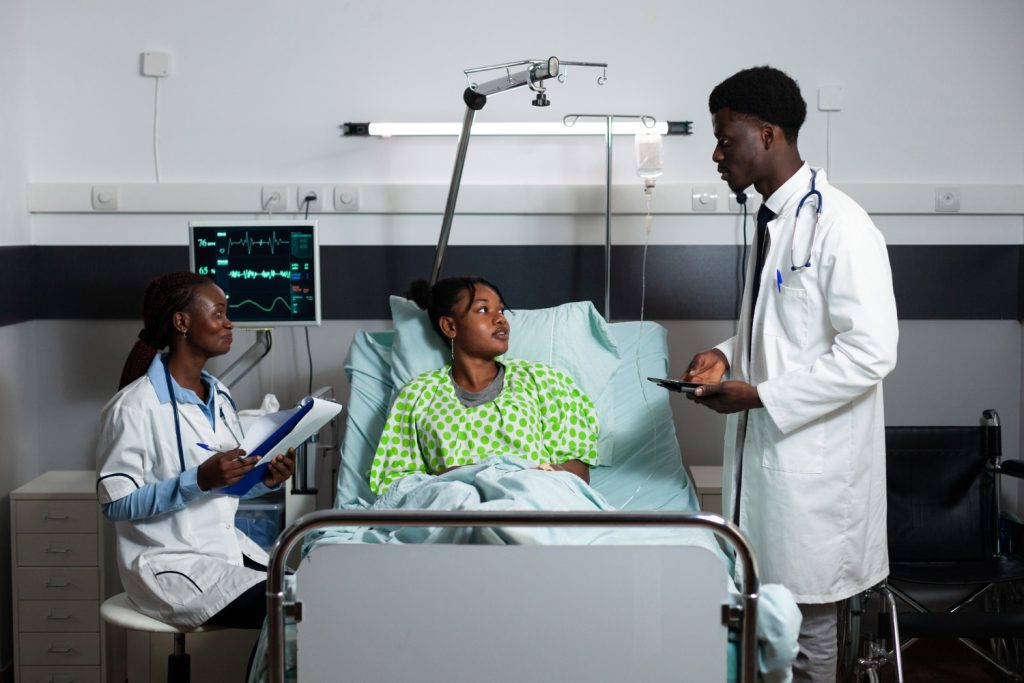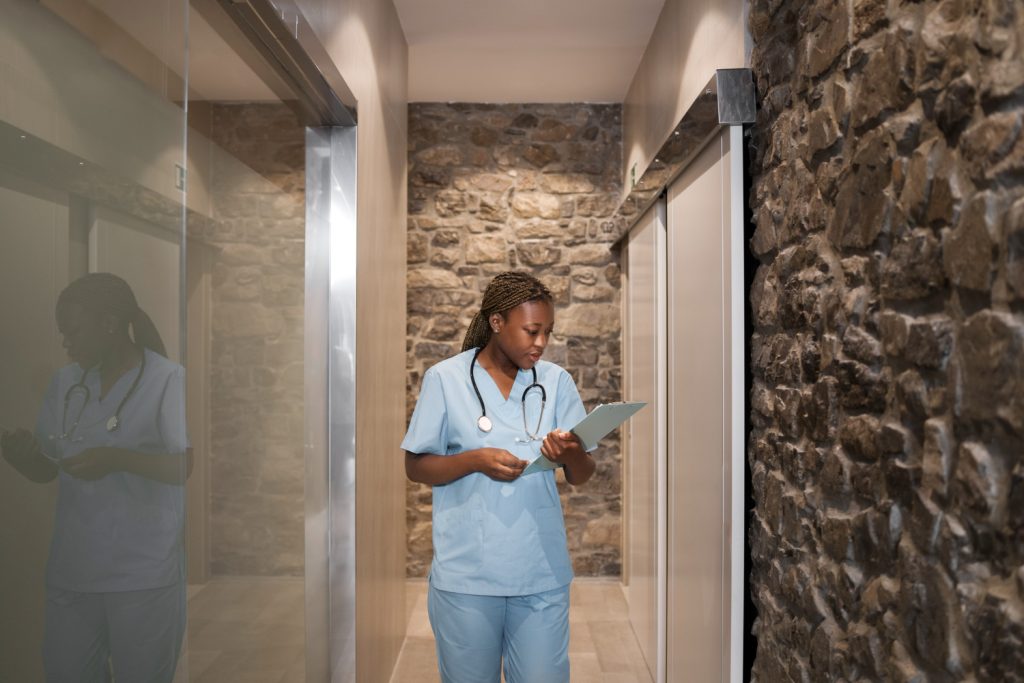Comprehensive overview of - Lagos State blood transfusion service
Project On Increased Online Presence, Visibility, And Branding of The Lagos State Blood Transfusion Service
Comprehensive overview of - Lagos State blood transfusion service
Project On Increased Online Presence, Visibility, And Branding of The Lagos State Blood Transfusion Service

Executive Summary
The Lagos State Blood Transfusion Committee was established by legislation in June 2004, gazetted in Law 10, Vol 5 Chapter L. 11 and became a subvented agency in January 2020. LSBTC Law is in line with W.H.O. Blood Safety Frameworks and Initiatives.
MISSION: To provide safe blood through recruitment of voluntary blood donors, screening of every unit of blood for Transfusion Transmissible Infections, efficient processing of blood, appropriate clinical use of blood to all who require it and effective regulatory activities to curb the menace of quackery.
A state where only safe blood is transfused in all appropriate health facilities
To ensure the safety and availability of blood for transfusion in Lagos state.
Integrity, Innovation, Quality Service, Research and Development.

Operations and Delivery
The Agency has six (6) departments (Administration and Human Resources, Quality Assurance and Control, Voluntary Blood Donor Recruitment, Screening & Certification, Blood Banking & Blood Component Preparation, Monitoring & Enforcement, and Finance & Accounts) and five (5) units (Planning & Statistics, Training & Research, Internal Audit, Procurement and Public Affairs).
Scope of Activities
– Advocacy/sensitization/mobilisation of the public on voluntary blood donation
– Recruitment and Retention of voluntary blood donors for continuous availability of safe blood
– Screening and Certification of all donated blood for Transfusion-Transmissible Infections (TTIs)
– Production of blood products: Red Cell Concentrates, Fresh Frozen Plasma, Platelet Concentrate Cryoprecipitate, 250ml Paediatric unit (whole blood), 150ml Paediatric unit (whole blood)
– Quality Control and Assurance (IQA, EQA)
– Collection of Convalescent plasma
– Compatibility tests of blood and blood products
– Investigations: Blood group and genotype, Coombs test (direct and indirect), Antibody titre, Coagulation tests, Full blood count
– Continuous Data Collection and Analysis
– Training, Research and Capacity building
– Regulatory activities: Monitoring of existing public and private blood banks, Licensing of new private blood banks & Surveillance of facilities that transfuse blood, Enforcement of BTS laws/policies, Strengthening of Hospital Blood Transfusion Committees.
Regulatory Jurisdiction– in accordance to the LSBTS Law 10- “The Law to Make Provision for the Establishment of the Committee for Blood Transfusion in Lagos State and Other Incidental Matters” states in Item 3
(b) supervise and regulate all the blood transfusion services in the State, i.e., in both private and public sectors and
(c) register, accredit and regulate blood transfusion service facilities throughout the State, i.e., both private and public sectors.
S/N | ACTIVITY | UNIT NO | LOCATION |
1 | LSBTS Voluntary donation centres | 3 | GH Lagos, GH Gbagada and Lagos State Accident and Emergency centre |
2 | LSBTS-owned blood banks | 3 | GH Gbagada, LIMH, LASUTH |
3 | Cold centrifuge component-producing centres | 3 | GH Gbagada, LIMH, LASUTH |
4 | Apheresis component collection centres | 4 | (1 State-owned- Mainland Hosp, Yaba; 3 Privately owned- Next Haematology, Evercare Hosp, Healing Stripes |
5 | Screening and Certification Centres | 8 | *Banner Diag. Int. Centre- LIMH, GH Gbagada, GH Agege, GH Ikorodu with 4 screening centres *Sola-Wunmi Ltd- GH Lagos, Alimosho GH *Darlez Nig Ltd- LASUTH |
6 | 3rd Party Blood Logistic Companies | 3 | Carter Biggs Logistics, Haima Health, LifeBank |
7 | Public Blood Banks and Blood donation centres | 31 | 30 Secondary/General and 1 Tertiary/Teaching hospitals |
8 | Licensed Private Blood Banks | 160 | In all LGs in Lagos State |
9 | All accredited health facilities that transfuse blood | >3000 | HERFAMMA data |
Blood, an essential medicine
Under resolution WHA63.12, blood and blood components were added to the core list of the WHO Model List of Essential Medicines in 2013. Blood as an Essential medicine is defined by the World Health Organization (WHO) as those medicinal products that satisfy the healthcare needs of the majority of the population. They should be available at all times, in adequate amounts with assured quality and affordability.
Adding blood to the WHO’s Model List of Essential Medicines can help
Who Needs Blood:
Blood transfusion is necessary to treat anyone who loses blood from severe injuries, accidents, complications in pregnancy, following surgeries, inherited diseases e.g. sickle cell disease, haemophilia, individuals with illness in which the body is unable to make some or all of blood components (e.g. leukaemia, bone marrow failure), severe anaemia following chronic renal failure, severe malaria and in cancer patients.
*Importance Of Blood Transfusion in the Management of Sickle Cell Disorder
For many PLWSCD, blood transfusions are a mainstay of their management and often require multiple blood transfusions throughout their lifetime. Regular blood transfusions are a crucial therapy for people with SCD, helping to:
Blood Donation
Blood donation is a safe and simple procedure in which blood is drawn from an individual for transfusion for those who require it.
– in whole or specific blood components
– collected manually or through the means of an automated machine (apheresis)
Types Of Blood Donors
– Family replacement donors– give blood to replace the blood used by a patient. It is a special way for family and friends to show their love and support. It is unable to meet medical emergencies
– Paid/commercial donors– donate blood in return for money or other form of payment. This is deemed blood selling. High risk of TTIS (transfusion-transmitted infections).
– Voluntary non-remunerated (unpaid) donors– donate blood willingly without payment, legal obligation, cohesion, compulsion, or persuasion. Recompense in any form or expectation of promise of remuneration or gifts. Voluntary donation gives a sustained blood supply, has a Low risk of TTIS and is available for quick response in emergencies.
Why Preference for Voluntary Donation
Donor Selection and Eligibility
You CAN donate blood if you are in good general health, between 18 years to 65 years (if in good health), the weight of at least 45kg, your haemoglobin level must be at least 12.5g/dl and whose donation interval is at least 3-4 months.
You CAN NOT donate blood if you have a history of fever, if you have uncontrolled or untreated high or low blood pressure, have a history of heart disease, cancer or bleeding disorder, if, in the past 12 months, you have had a tattoo, body piercing, scarification, permanent makeup, acupuncture and if female, is menstruating, pregnant, history of miscarriage in the past 6 months or breastfeeding.
More questions of clinical health and risk behaviours are asked in the donor eligibility questionnaire/donor registration form.
Benefits of Blood Donation
– Anticancer benefits- A reduction in iron levels is linked to low cancer risk
– Reducing the risk of heart disease and strokes
– Maintains a healthy liver
The Role of the Donor Before and After a Blood Donation
Challenges in the Availability of Safe Blood
Where can I donate blood?
In the blood mobile- a converted Toyota coaster bus with all equipment to ensure a safe blood donation process.
Mr. Governor’s Support in Access to Safe Blood
Blood is available for all patients, without payment for screening for people living with sickle cell disorder, disaster victims, accident victims from Lagos State accident and emergency centre, burns and trauma, indigents etc. This is available ONLY at LSBTS Gbagada Centre, LSBTS Lagos Island Maternity Centre and LSBTS Lagos State University Teaching Hospital Centre, Ikeja.